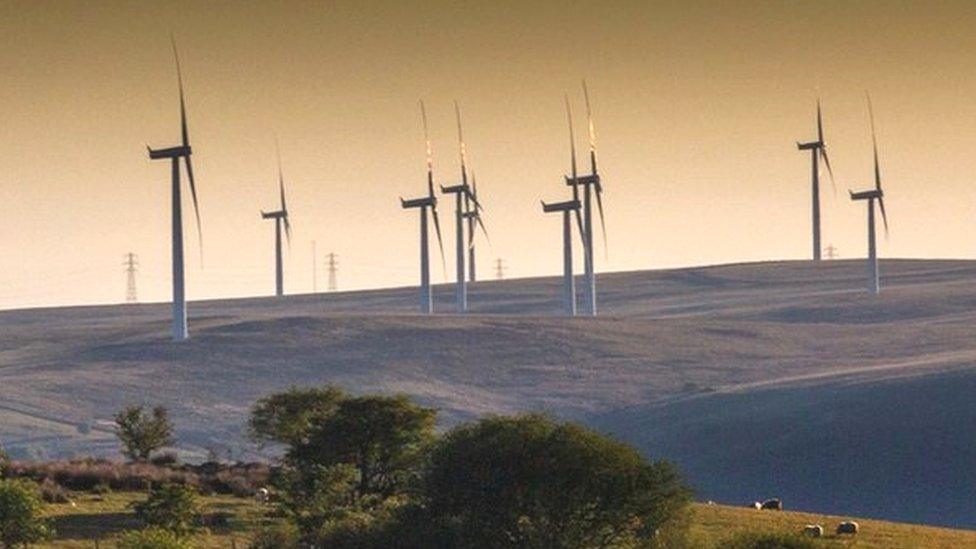Climate change: Lecturer's day lying in ditch 'gives soil a voice'
- Published
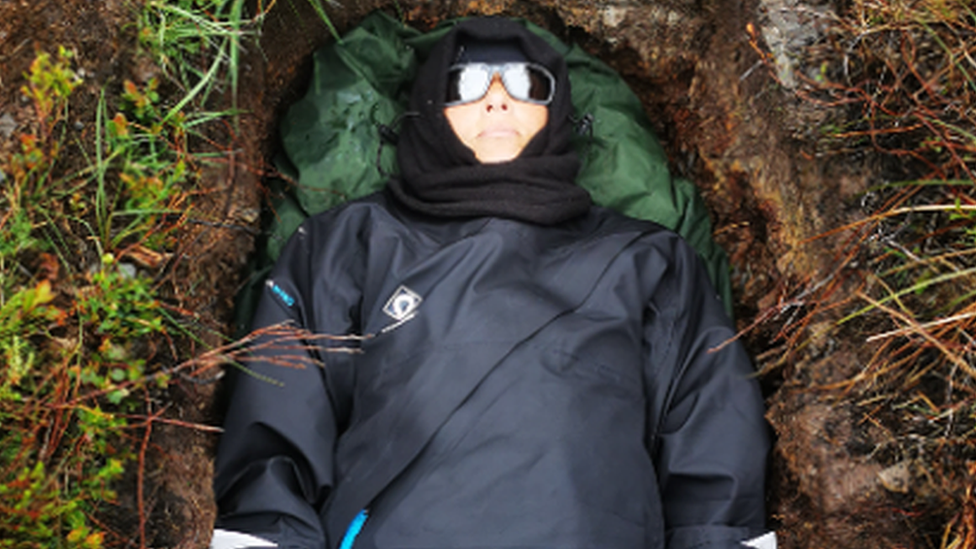
Miranda Whall will spend 24 hours in a ditch to raise awareness of soil issues
A university lecturer plans to live stream from a mountain ditch for 24 hours to highlight soil issues and raise climate change awareness.
Miranda Whall will be in a self-dug ditch about 600m (1,960ft) up in the Cambrian Mountains in Ceredigion from Saturday afternoon.
The Aberystwyth University academic dressed as a sheep for a previous project, and likes to "bring some humour" to grab attention.
She aims to "give a voice to the soil".
Ms Whall will attempt to vocalise a live numerical data stream from sensors in the ground around her, which measure soil moisture and temperature.
Beginning at 15:00 BST on Saturday, she intends to lie in the ditch for 24 hours, reciting the numbers on the hour, every hour.
"I try to bring some humour to bring in new audiences, but this is about the health of the soil, the ecosystem of the soil, so the relationship between the micro-organisms and the plant life," she told BBC Radio Wales Breakfast.
"I'm lying about 2ft (0.6m) down. It's a beautiful place, it's warm, cosy and out of the wind, but unfortunately it's not quite out of the rain.
"So I've got a dry suit on and various balaclavas.
"It's intentionally very boring, but the boringness of these numbers are profound because our lives, other species' lives, are based on them."
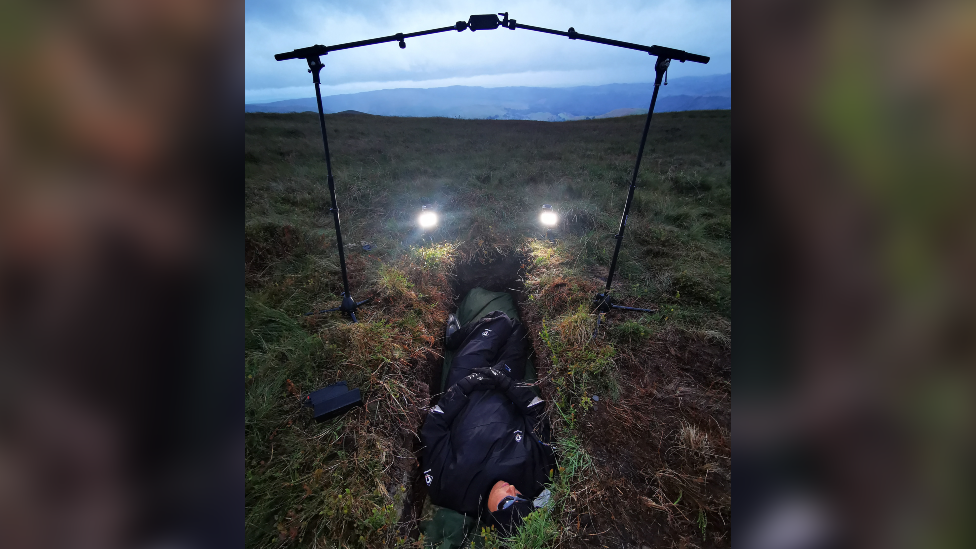
"I actually crawled 5-and-a-half miles in the same place six years ago so I know it quite intimately"
The live stream will be on Facebook, running until 15:00 BST on Sunday.
"I woke up this morning thinking I wish it was an ordinary day, but I guess my commitment is to the earth, this is a kind of silent protest if you like," she said.
"I feel so strongly about what we're facing that this is my commitment to the earth and our need to change.
"This project is about facilitating wider audiences and non-scientists to become part of the conversation about land management and climate change."
Related topics
- Published30 December 2022
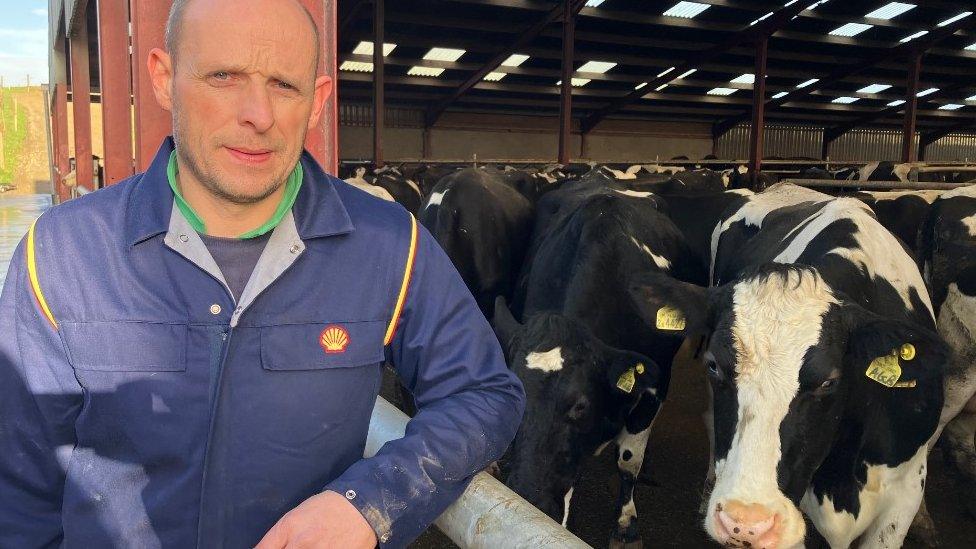
- Published14 October 2022
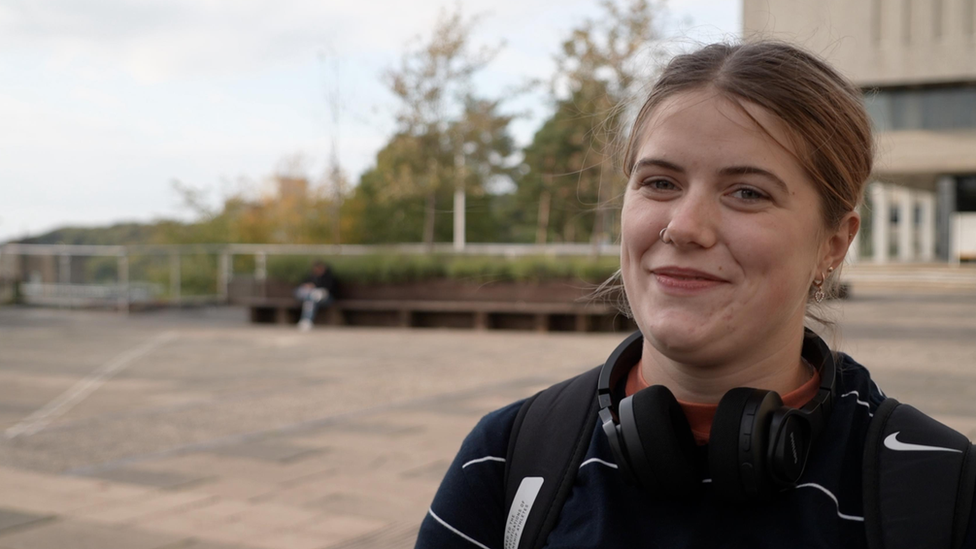
- Published12 August 2023
